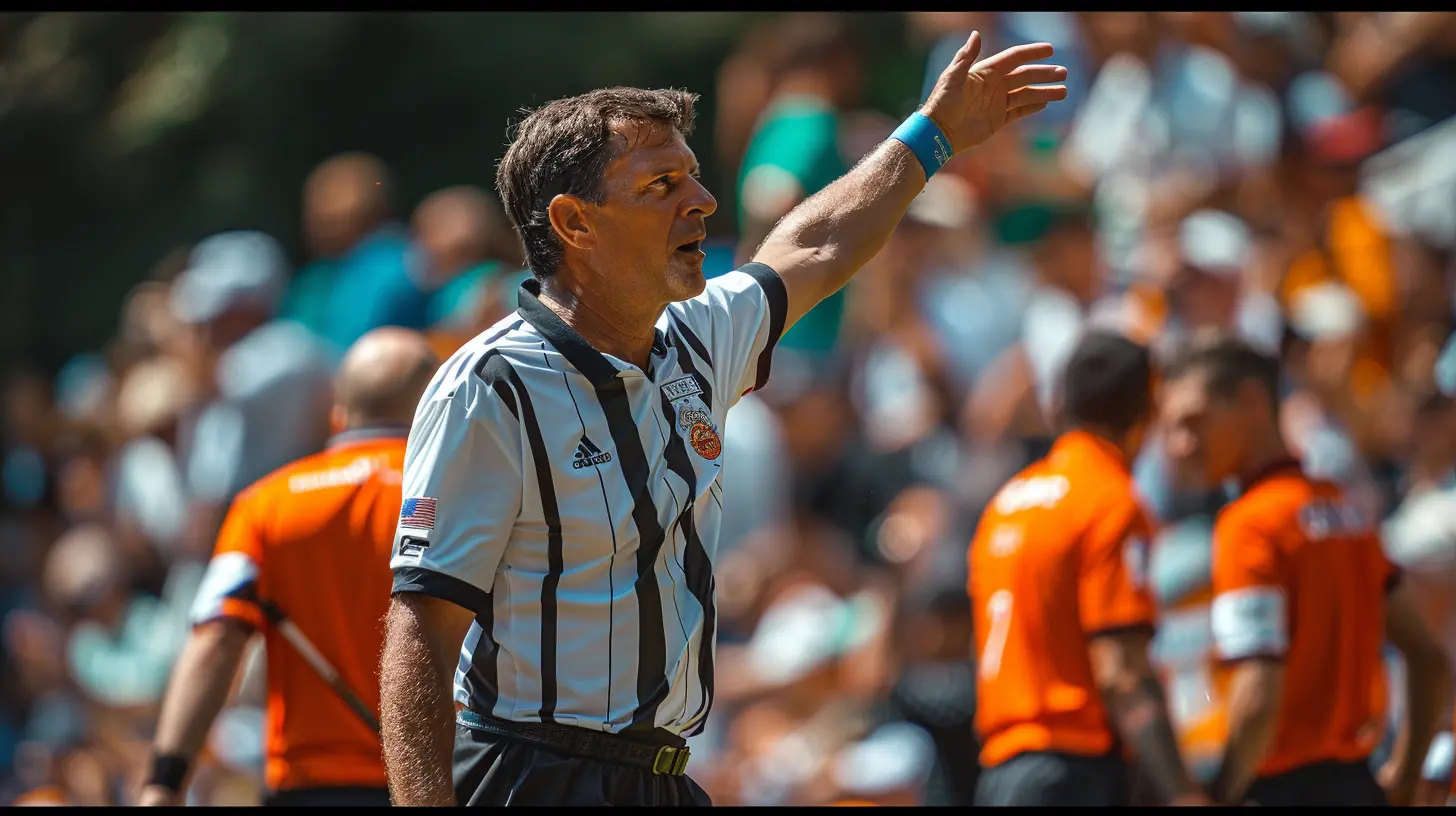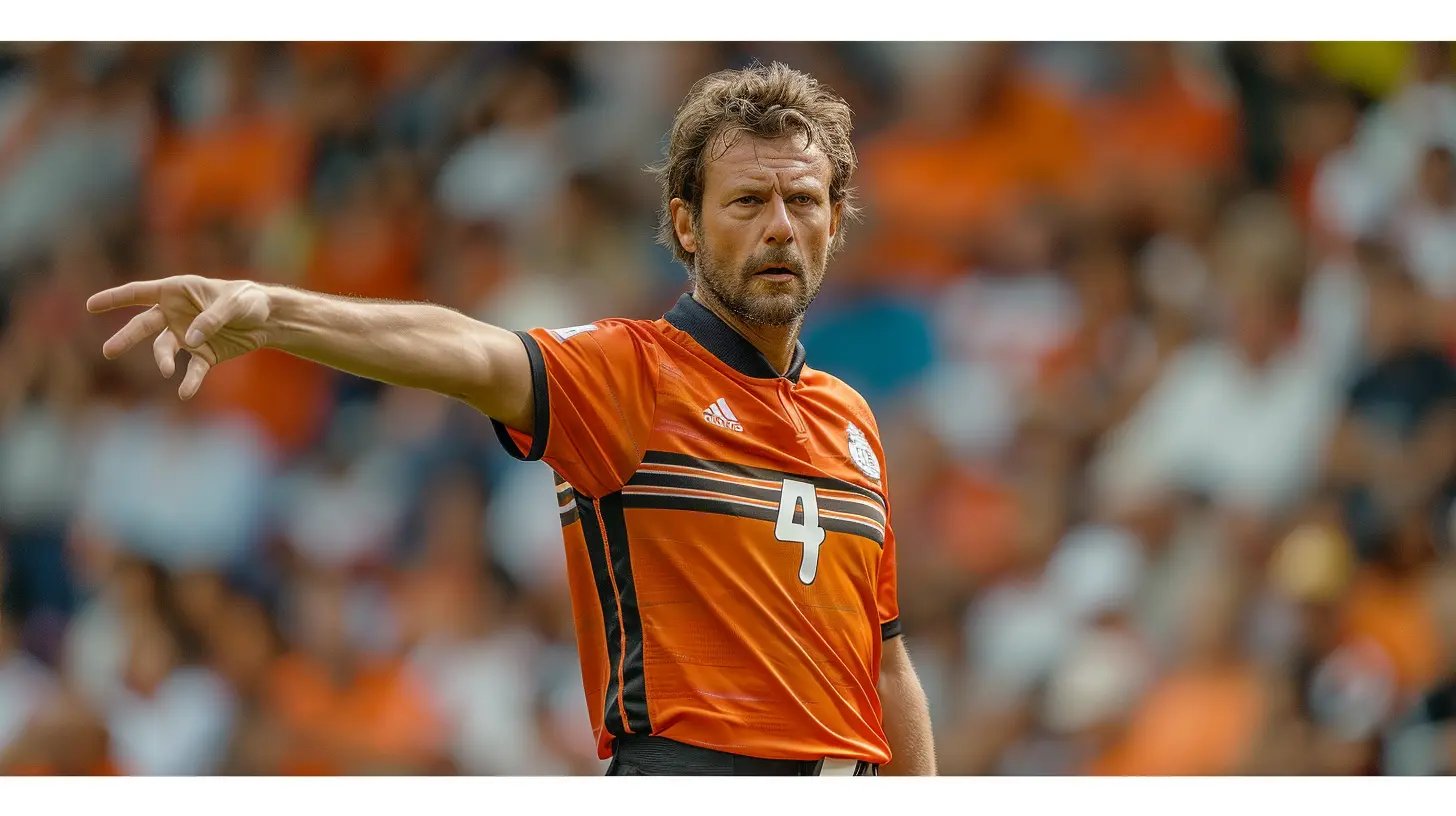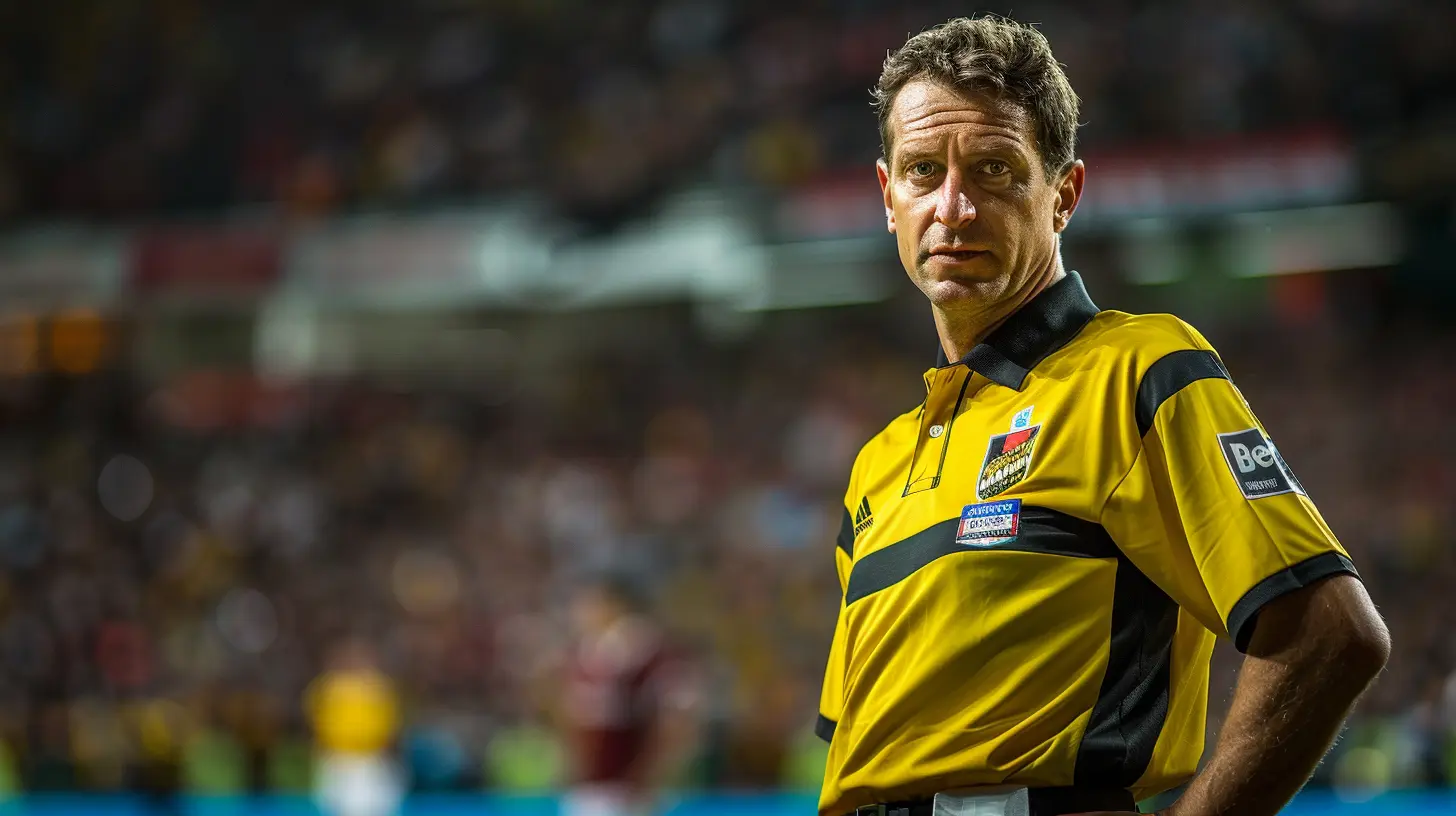Breaking Down the Biggest Refereeing Decisions in Major Sports History
19 September 2025
Let’s be honest—if you’ve ever watched a live game, chances are you’ve yelled at the TV (or maybe even at the ref) at least once. We’ve all been there. Sports are emotional, unpredictable, and often come down to just one moment—a call from the referee that can send fans celebrating or sulking. That whistle blow? It’s not just air and sound. It can change the outcome of championships, cost careers, and spark debates that last for decades.
So, what happens when the person in charge of keeping things fair makes a decision that splits opinions right down the middle? Let’s take a trip down memory lane and break down some of the biggest, most controversial, and unforgettable refereeing decisions in major sports history.
Why Referees Have Such a Huge Impact
Before we jump into the juicy stuff, let’s set the stage. Referees and officials are supposed to be the impartial guardians of the game. They enforce the rules, maintain order, and ensure fair play. But because sports are fast, furious, and full of chaos, they're also prone to mistakes—just like the rest of us.And here's the kicker: even with all the tech in the world—instant replays, VAR, goal-line technology—controversy still finds a way to creep in. So, whether it's human error, interpretation of the rules, or sheer pressure, once a major call is made, there's no taking it back.
The “Hand of God”: Diego Maradona’s Infamous Goal (1986)
Let's kick off with one of the most iconic—and blatant—controversial moments in sports history.What Happened?
In the 1986 FIFA World Cup quarterfinal between Argentina and England, Diego Maradona scored a goal with his hand. Yep, his hand. It was clear as day, but the referee didn't see it. Maradona cheekily called it the “Hand of God.”Why It Matters
Argentina won the match 2-1 and eventually the World Cup. English fans? They've been grumbling about it ever since. This moment became a symbol of football folklore—half genius, half scandal.Did Technology Help?
Nope. VAR didn’t exist back then. If it did, there’s no way that goal would’ve stood.
The Immaculate Reception (NFL, 1972)
What Happened?
Pittsburgh Steelers vs. Oakland Raiders. 1972 AFC Divisional Playoff. A tipped pass from Terry Bradshaw somehow landed in Franco Harris's hands—just inches before it hit the ground—and he ran it in for a touchdown. Total chaos.The Controversy?
Replay angles were inconclusive. Did the ball hit the ground? Did it bounce off a teammate or an opponent? No one really knows. But the refs stuck with the touchdown.Why It’s Huge
This play turned the tide for the Steelers’ franchise. It’s debated to this day and is still one of the most talked-about moments in NFL history.
2002 NBA Western Conference Finals - Game 6: Lakers vs. Kings
What Happened?
This one’s still a sore spot for Sacramento Kings fans. In Game 6, the Lakers shot 27 free throws—in the fourth quarter alone. Some of the fouls called were... questionable, to put it nicely.The Rumors
Years later, disgraced referee Tim Donaghy hinted at league manipulation to extend the series. While it’s never been proven, the calls that night definitely had people scratching their heads.Why Fans Lost It
The Kings were the better team for most of that series. But after that game, it felt like justice had left the building—and maybe taken a Lakers jersey with it.The Tuck Rule Game: Patriots vs. Raiders (2002)
What Went Down?
Snowy night. Divisional playoff game. Tom Brady fumbled—or did he?The officials reviewed the play and ruled that Brady’s apparent fumble was actually an incomplete pass due to the lesser-known “tuck rule.” Patriots kept the ball, tied the game, and won in OT.
Why It’s Wild
That moment helped launch the Patriots dynasty. Without it, who knows if Brady ever becomes Brady. Raiders fans still believe they were robbed.Thierry Henry’s Handball Assist – France vs. Ireland (2009)
The Setup
World Cup qualifier. France needed a win to book their ticket to South Africa. In extra time, Thierry Henry controlled the ball—with his hand—and set up the winning goal.Outrage Ensued
Irish players and fans were livid. Replays clearly showed the handball. The goal stood, and Ireland’s dream crashed.What’s Even Worse?
Despite global pressure, FIFA refused a replay. A classic “too bad, so sad” moment in World Cup qualifying history.The Phantom Goal in the 1966 World Cup Final
What Happened?
England vs. West Germany. Extra time. Geoff Hurst’s shot hit the underside of the crossbar and bounced down. Did it cross the line?The Verdict?
Referee consulted the linesman—goal given. England went on to win 4-2, clinching their only World Cup to date.Was It Really In?
To this day, many believe it shouldn’t have counted. But go tell that to an English fan—good luck.Serena Williams vs. Umpire Carlos Ramos – US Open Final 2018
The Match That Got Personal
Serena Williams received three code violations in the final against Naomi Osaka, including one for calling the umpire a “thief.” She lost a game and ultimately the match.Public Reaction
Some thought the umpire was enforcing the rules. Others felt Serena was unfairly targeted and punished more harshly than male players in similar situations.Bigger Picture?
It sparked a global debate on sexism in sports officiating, overshadowing Osaka’s incredible win.Frank Lampard’s Ghost Goal – 2010 World Cup
What Happened?
England vs. Germany. Lampard hits a shot from outside the box. The ball hits the crossbar, bounces down—clearly over the line—and back into play. No goal given.The Aftermath
Germany cruised to a 4-1 win, but that missed call fueled the push for goal-line technology. Now, we’ve got tech that alerts the ref instantly if the ball crosses the line. Better late than never, right?Brett Hull’s Stanley Cup–Winning Goal (1999)
The Moment
Triple overtime. Stanley Cup Final. Brett Hull scores for the Dallas Stars—but his skate was in the crease, which should have nullified the goal according to the NHL rules at the time.The Confusion
Officials said he had possession before entering the crease, so the goal stood. Buffalo Sabres fans? Outraged. They’re still chanting “No Goal” to this day.VAR: The Modern-Day Controversy Machine
And then, there’s VAR (Video Assistant Referee). Meant to eliminate mistakes, right? Ironically, all it’s done is add layers of frustration.Disallowed goals for toenail offsides, long waits for decisions, and controversial handball rules—VAR hasn’t exactly been the messiah fans were hoping for. While it gets some calls right, it also drains the emotion right out of the game.
Why These Moments Stick With Us
So, what is it about these decisions that makes them so unforgettable? It's not just the drama. It's the lasting impact. These calls didn’t just change games—they changed careers, legacies, and even the rules.They remind us that while we strive for fairness in sports, perfection is impossible. That’s what makes the wins sweeter, the losses more painful, and the debates never-ending.
The Human Element: Blessing and Curse
Let’s face it—we want refs who are fair, consistent, and invisible. But refs are human, not robots. They’re under insane pressure, making split-second decisions, dealing with rabid fans, tricky rules, and now, social media scrutiny.Still, that human element? It’s what keeps the heart of sport beating. It’s messy, emotional, and totally unscripted.
When the Rules Change Because of Controversy
Funny how it takes a scandal to spark change. A few of these calls actually led to major rule changes:- Lampard’s ghost goal = Goal-line tech
- Thierry Henry’s handball = Renewed FIFA focus on fair play
- Tuck Rule = Eventually eliminated from NFL playbook
- VAR = Born from a desire to “fix” human error (yet introduced its own set of issues)
So yeah, bad calls hurt, but they also push sports forward.
Final Thoughts: No Whistle Is Heard in a Vacuum
Big calls will always be part of the game. Whether fair or flawed, they shape the stories we tell. We argue, defend, cry, and celebrate because of them.Love them or hate them, referees and their decisions are stitched into the fabric of sports history. So next time you feel like throwing your remote at the screen after a dodgy call, just remember—you might be witnessing the next chapter in the never-ending saga of sports drama.
And let's be real… would we really want it any other way?
all images in this post were generated using AI tools
Category:
RefereeingAuthor:

Umberto Flores
Discussion
rate this article
1 comments
Sybil Riggs
What a fascinating analysis! Diving into these pivotal refereeing moments truly highlights the game’s intricacies. It’s amazing how one decision can shape the course of history in sports. Great read!
October 17, 2025 at 11:41 AM

Umberto Flores
Thank you so much for your kind words! I'm glad you enjoyed the analysis and found it insightful.


